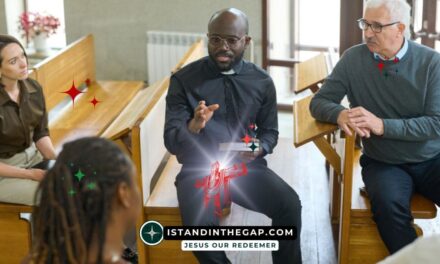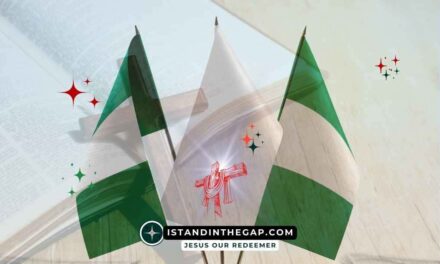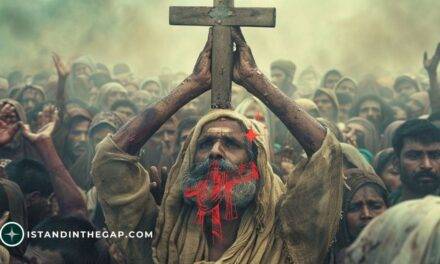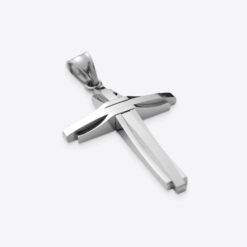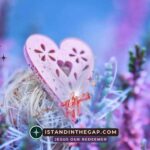In honoring Indigenous Christian heritage, NAIDOC Week serves as a powerful reminder of Australia’s rich interwoven cultural background. Celebrations and reflections from 7 to 14 July 2024 exemplify this.
Short Summary:
- NAIDOC Week celebrates Aboriginal and Torres Strait Islander culture.
- Originally initiated by Indigenous Christian William Cooper.
- Includes diverse activities fostering reconciliation and recognition.
From July 7 to 14, 2024, Australians will come together to celebrate NAIDOC Week, a commemoration that honors the enduring heritage, culture, and accomplishments of Aboriginal and Torres Strait Islander peoples.
This week-long festivity offers a vivid table of events including art exhibitions, traditional dance, music performances, sports competitions, storytelling, and community feasts, all aiming to foster a deeper understanding and respect for Indigenous traditions.
Historical Significance and Origins
NAIDOC stands for the National Aboriginal and Islanders Day Observance Committee. Frequently overlooked, the Christian roots of NAIDOC Week are foundational, initiated by an Aboriginal Christian named William Cooper. In the 1930s, Cooper, a committed activist and unionist, urged Australian churches to pray for Indigenous Australians.
He believed in the transformative power of Christian missions and constantly advocated that Aboriginals deserve equal treatment, seeing all people as God’s children.
William Cooper’s Vision
Cooper, who was tutored by missionaries, founded the Australian Aborigines League and in 1935, petitioned King George V for special Aboriginal electorates in the Australian Parliament. While his petition was dismissed by Prime Minister Lyons, Cooper did not relent. He organized Aboriginal marches on what he termed ‘The Day of Mourning’ in 1936.
When the request fell on deaf ears, he co-ordinated Aboriginal marches through the streets of Sydney and Melbourne on Australian Day 1936 – called ‘The day of Mourning.’
Through his efforts, the first ‘Aboriginal Sunday’ was observed on January 28, 1940, a tradition that later evolved into the full-fledged NAIDOC Week celebrated today.
Christian Heritage and Leaders
The contribution of Australian Aboriginal Christians to their communities is immense. Take Neville Bonner, for example, the first Indigenous Australian politician elected in 1972.
Bonner was deeply passionate about helping Aboriginal communities and held Christian values dearly. Additionally, James Japanma ‘Jibanyama,’ an Aboriginal leader and evangelist born in 1902, became the first recognized Aboriginal evangelist at the Roper River Mission.
“James Japanma was baptized on 11 May 1913 at the Roper River Mission and highly valued by the European Missionaries as their translator.”
Other Influential Figures
Shirley Coleen Smith, affectionately known as ‘Mum Shirl,’ epitomized social work and activism in her lifetime. A Wiradjuri woman, she founded multiple services like the Aboriginal Legal Service and the Aboriginal Medical Service, among others.
James Dargin, another shining example, leveraged his experience of an abusive childhood to preach forgiveness and unity.
Celebrations and Activities
NAIDOC Week is a powerful medium through which Australians learn about Indigenous cultures. Events will include community feasts, traditional dance, art exhibitions, music performances, sports competitions, and storytelling sessions. Each activity aims to foster better understanding and solidarity.
The Forgiveness Cross and Christian Recognition
From a Christian perspective, NAIDOC Week also recognizes significant events like the launch of the Forgiveness Cross on Memory Mountain at Haasts Bluff.
Built in 1923 by four Indigenous evangelists, this cross symbolizes both the proclamation of Jesus’s Gospel and efforts to create tourism employment opportunities for the Inkuntji community.
“They welcome every one of every nationality to visit their community and experience their way of life.”
The Role of Prayers and Collects
Prayers and Collects have always held an essential place in honoring Indigenous Christian heritage. Bishop Arthur Malcolm, Australia’s first Indigenous bishop, penned a prayer with his wife Colleen for reconciliation, highlighting the need to come together as one, unified body under Christ:
Lord God,
Bring us together as one.
Reconciled with you and
reconciled with each other.
You made us in your likeness;
You gave us your son, Jesus Christ.
He has given us forgiveness from sin.
Lord God,
Bring us together as one.
Different culture, but
given new life in Jesus Christ;
Together as one, your body,
your church, your people.
Lord God,
Bring us together one.
Reconciled, healed, forgiven,
Sharing you with others,
as you have called us to do.
In Jesus Christ,
let us be together as one.
Amen.
Role of the Contemporary Church
Unfortunately, the connection between NAIDOC Week and its Christian beginnings has diminished in some churches today. Reviving this relationship is crucial. Mark Smith, in his ministerial letter, emphasizes that churches should reclaim their role in honoring Indigenous cultures while fostering unity:
“We need to recapture Cooper’s vision. Take a moment to pray: Creator God, you made from one man all nations.”
The Collect for Reconciliation written by Bishop Arthur Malcolm and his wife remains a timeless invocation for unity and healing, transcending cultural and temporal boundaries:
Lord God,
Bring us together as one.
Reconciled with you and
reconciled with each other.
You made us in your likeness;
You gave us your son, Jesus Christ.
He has given us forgiveness from sin.
Lord God,
Bring us together as one.
Different culture, but
given new life in Jesus Christ;
Together as one, your body,
your church, your people.
Lord God,
Bring us together one.
Reconciled, healed, forgiven,
Sharing you with others,
as you have called us to do.
In Jesus Christ,
let us be together as one.
Amen.
Honoring Elders
NAIDOC Week 2024’s theme, “For Our Elders,” focuses on revering the wisdom and resilience of Indigenous elders. This recognition encapsulates storytelling, spiritual leadership, and their undying contribution to cultural preservation.
Alison Overeem beautifully captures this essence in her prayer for elders:
Creator, today let the wisdom and knowledge of our Elders be heard in every surrounding
Voices of strength, whisper across milaythina ningee
We pray, for and with Elders
Today, tomorrow and in the forever time.
Amen
Conclusion
NAIDOC Week remains an essential celebration that places Indigenous culture and Christian heritage at the forefront. By acknowledging the past and engaging actively in the present, it brings all Australians a step closer to understanding, unity, and true reconciliation.
As we participate in the festivities, prayers, and reflective practices, let us remember the trails blazed by pioneers like William Cooper and continue to strive for a more inclusive and respectful society.


